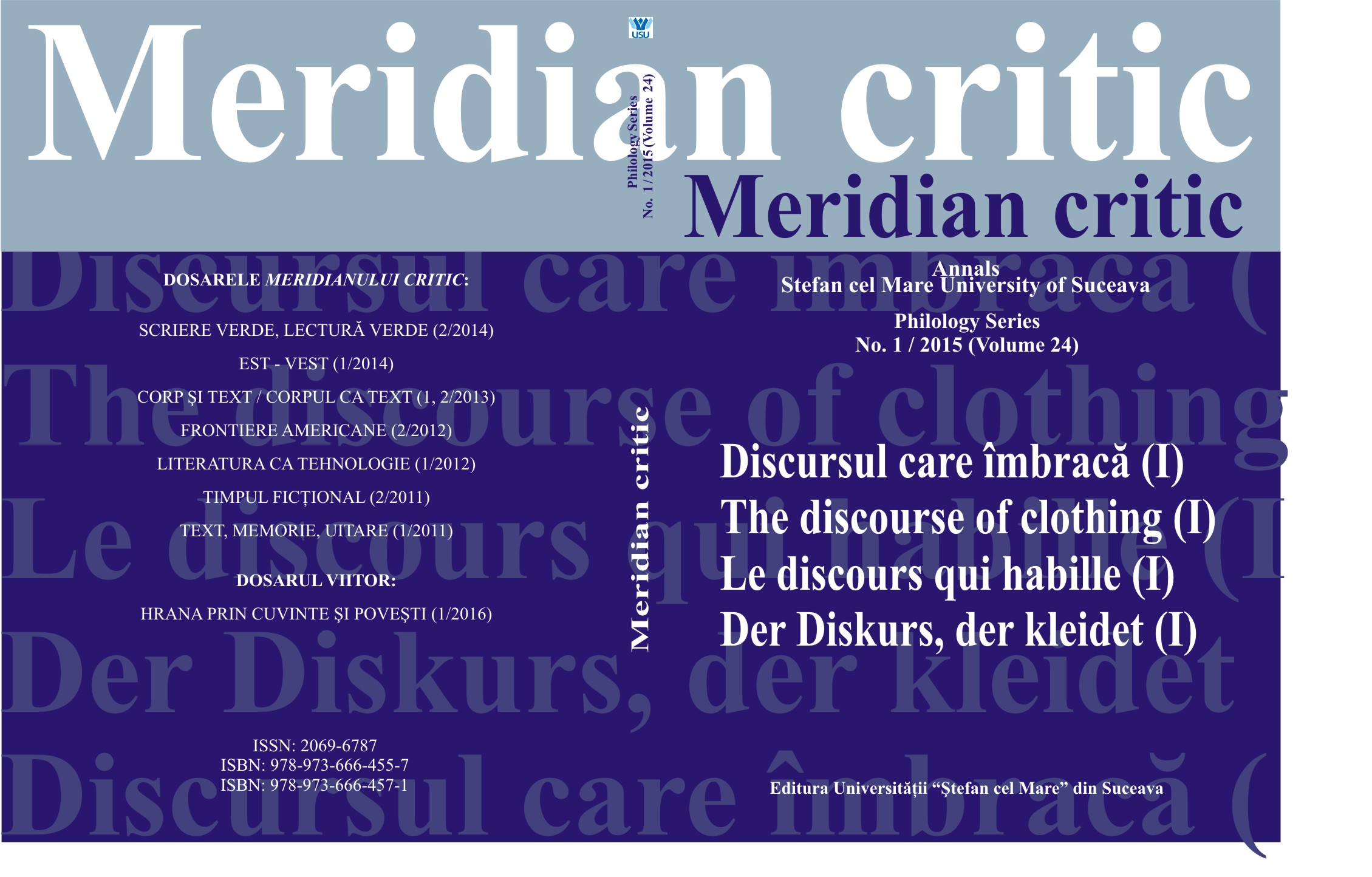La « philosophie du vêtement »
dans le théâtre de Luigi Pirandello
The « sartorial philosophy » in Luigi Pirandello’s plays
Author(s): Sylwia KucharukSubject(s): Language and Literature Studies
Published by: UNIVERSITATEA »ȘTEFAN CEL MARE« SUCEAVA
Keywords: Pirandello; theatrical costume; philosophy of clothing;
Summary/Abstract: Theatrical costume as the actor’s attire plays a specific role in the theatre. It is a mark of theatrics, portrays the play’s character and is an integral element of acting itself. In the Pirandello theatre, the costume is not only of importance due to the above said features but also because it is a part of the so called ‘role playing’, one of the key problems raised by the Italian dramatist. To Pirandello, society is a costume, and man as a social creature must put it on so as to cover all that is ugly in him/her, despicable, not acceptable by others. Similar to an actor who puts on a theatrical costume appropriate to the character he/she will play, man, in real life, puts on an appropriate attire to suit the role he/she wants to play in front of others to make a good impression and be accepted by other members of society. The costume has characteristics of a mask which covers man’s true self. Hence, Pirandello’s conviction that life is a never-ending masquerade overflowing with hypocrisy and pretense, in which there is no room for authenticity and truth. This article presents the definition of costume in Pirandello theatre through the analysis of the costume function in Pirandello’s following plays: Clothing The Naked, Henry IV, The Man, the Beast and the Virtue.
Journal: Meridian critic
- Issue Year: XXIV/2015
- Issue No: 1
- Page Range: 121-132
- Page Count: 12
- Language: French

